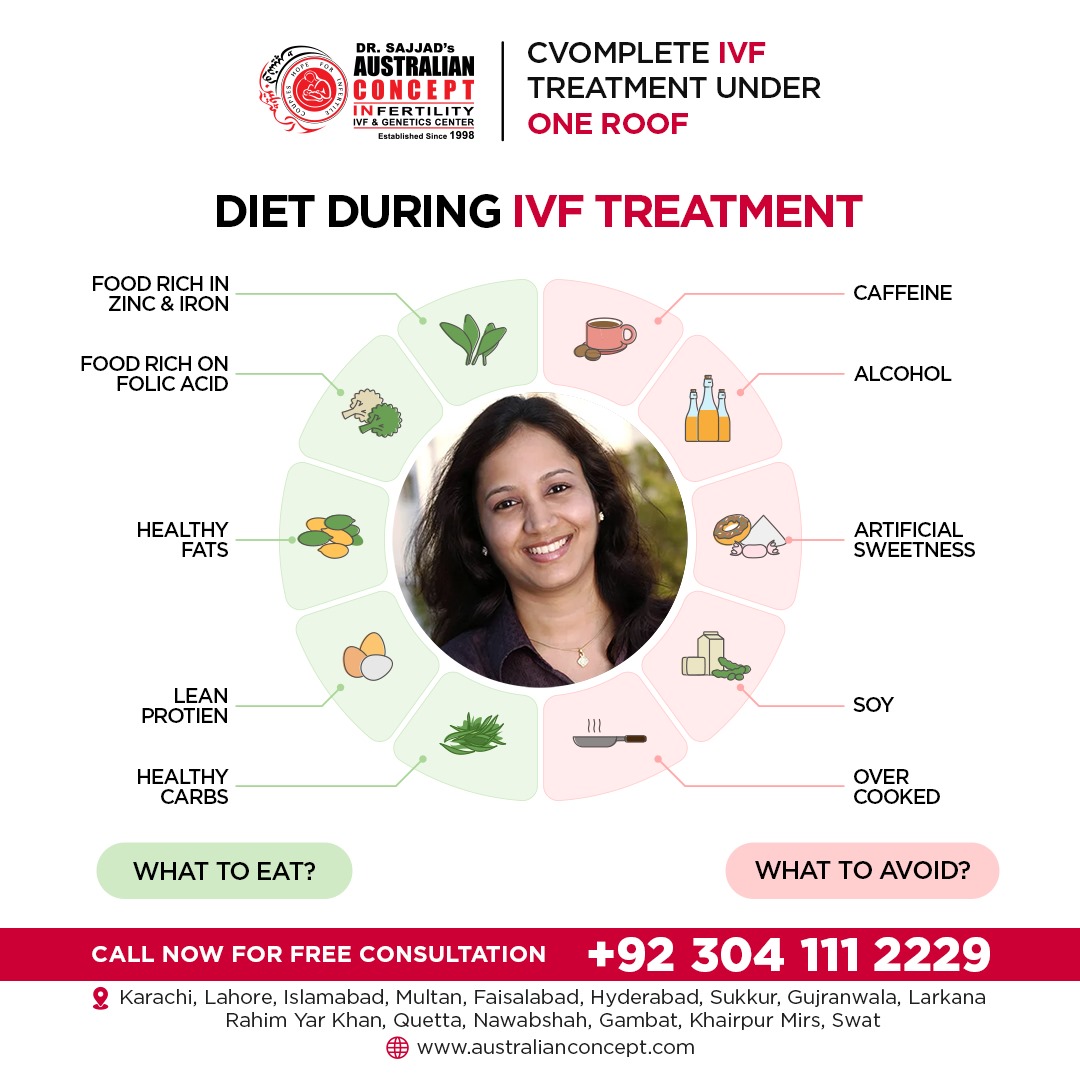Diet plays a significant role in supporting fertility, especially during IVF treatment. The right nutrition can aid in hormone regulation, improve egg quality, and provide overall support during this journey. Here, we explore key dietary recommendations that can contribute to better outcomes during IVF.
1. The Importance of Nutrition in IVF Treatment
Good nutrition is essential for anyone undergoing IVF treatment. A balanced diet helps maintain energy levels, manage stress, and regulate hormones, all of which are crucial for IVF success. Studies suggest that consuming a diet rich in vitamins, minerals, and antioxidants can positively impact fertility and the body’s ability to respond to IVF protocols.
2. Focus on Whole Foods
Whole foods, such as fruits, vegetables, whole grains, and lean proteins, are fundamental during IVF. These foods provide vital nutrients like folate, iron, and antioxidants that can support reproductive health. Foods high in antioxidants help combat oxidative stress, which can damage eggs and sperm. Dark leafy greens, berries, nuts, and seeds are excellent sources to include in a fertility-friendly diet.
3. Essential Nutrients for IVF Success
Key nutrients are especially beneficial during IVF, each playing a unique role in fertility health:
- Folate: Folate-rich foods like spinach, legumes, and fortified grains support cell division and DNA synthesis, which are crucial for embryo development.
- Iron: Iron deficiency is common in women and can negatively impact fertility. Foods like lean meats, leafy greens, and lentils provide good sources of iron.
- Omega-3 Fatty Acids: Omega-3s found in fatty fish, flaxseeds, and walnuts reduce inflammation and promote healthy hormone function, supporting fertility and embryo development.
An infertility specialist may also recommend supplements, especially if certain nutrients are lacking, but whole foods should remain the foundation of the diet.
4. Managing IVF Side Effects with Diet
IVF treatments can sometimes cause bloating, nausea, and fatigue. A healthy diet can help manage these symptoms. Eating smaller, frequent meals can combat nausea and regulate blood sugar levels. High-fiber foods like fruits, vegetables, and whole grains help with digestion and reduce bloating. Staying hydrated is also essential, as hydration aids in hormone transport and nutrient delivery.
5. Protein and Fertility
Proteins are the building blocks of the body and play an essential role in fertility. Including quality protein sources like eggs, fish, and legumes in your daily diet can help improve egg quality. Avoid processed meats, which contain preservatives that may negatively impact fertility.
For those undergoing IUI treatment, a similar high-protein, nutrient-dense diet can benefit sperm quality in men and egg quality in women. Protein-rich diets aid in cell growth and repair, both crucial for successful conception.
6. Foods to Avoid During IVF Treatment
Certain foods and beverages may hinder fertility and should be avoided during IVF treatment:
- Processed Foods: Processed and high-sugar foods can lead to insulin spikes, affecting hormone balance. Stick to whole foods whenever possible.
- Alcohol: Alcohol consumption can interfere with hormone production and reduce the chances of conception. Abstaining from alcohol is recommended during IVF.
- Caffeine: High caffeine intake may negatively impact fertility. Limit coffee, tea, and energy drinks to moderate amounts or switch to herbal alternatives.
Reducing or avoiding these foods will support your body’s natural processes, aiding in a healthier response to IVF treatment.
7. Lifestyle Habits That Complement Diet
While diet is essential, lifestyle choices also play a role in IVF success. Regular exercise, stress management, and quality sleep contribute to fertility. Gentle exercises like yoga or walking can improve circulation and reduce stress without straining the body. Managing stress can be beneficial, as stress hormones can disrupt the reproductive process.
An infertility hospital in Lahore often provides comprehensive care that includes guidance on both diet and lifestyle to support IVF outcomes. Their specialists can offer customized advice based on individual health needs.
8. Monitoring and Adjusting Diet Throughout Treatment
The body’s needs may change throughout the different stages of IVF, and staying in communication with a fertility clinic can ensure your diet aligns with these changes. Nutritional adjustments may be necessary to match the demands of hormone treatments or specific stages of embryo development. A fertility specialist can work with you to make sure your diet provides the nutrients your body needs.
Conclusion
Diet is a key component of IVF success, offering the necessary support for hormone regulation, egg quality, and embryo development. By focusing on whole foods, essential nutrients, and avoiding certain substances, individuals can positively influence their chances of success in IVF treatment. Consulting with an infertility specialist or dietitian can further refine your dietary approach, ensuring it’s tailored to your specific fertility needs.




